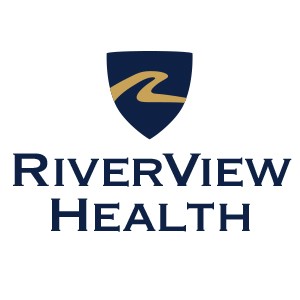Now that Mother’s Day is behind us, it’s time to gear up for Father’s Day (June 16), Men’s Health Week (June 10-16) and RiverView Health’s Free Prostate Screening June 19.
This is the eighth year RiverView will hold the screening, thanks to funds donated through the RiverView Foundation. The screening is also made possible thanks to the staff of RiverView’s North Clinic; RiverView Urologist Dr. Eric Schommer; Cancer Center of North Dakota Radiation Oncologist Dr. William Noyes; and Foundation Board of Directors member and donor Kurt Heldstab, a cancer survivor himself.
Aside from non-melanoma skin cancer, prostate cancer is the most common cancer in American men, according to the Centers for Disease Control and Prevention. It is also one of the leading causes of cancer death among men of all races. In 2015, 183,529 new cases of prostate cancer were reported in the United States; 28,848 men died of prostate cancer that same year.
Prostate cancer is a serious disease, but most men diagnosed with prostate cancer do not die from it. In fact, more than 2.9 million men in the United States who have been diagnosed with prostate cancer at some point are still alive today – many because of early detection screenings like the annual event at RiverView.
GENERAL FACTS ABOUT PROSTATE CANCER
The prostate is a male sex gland about the size of a walnut and is located below the bladder. Prostate cancer develops from the cells of the prostate gland.
Not all prostate cancers are the same. Many grow slowly and do not cause any harm. Others grow quickly and cause serious health problems or death.
Prostate cancer is slow growing in the majority of men who have it. Most men will die with prostate cancer rather than from prostate cancer.
Men who have prostate cancer can remain symptomless for years, and most cases of early prostate cancer cause no symptoms. However, men should talk with their providers if they:
- Urinate frequently or can’t urinate
- Have trouble starting or holding back urination
- Have a weak or interrupted urine flow
- Feel frequent pain or stiffness in the lower back, hips, or upper thighs
THE SCREENING PROCESS
Prostate cancer can often be found early by testing the amount of prostate-specific antigen (PSA) in a man’s blood. Another way to find prostate cancer is through a physical exam with a provider.
If the results of either one of these tests are abnormal, further testing is needed to determine if there is cancer. If prostate cancer is found as a result of screening with the PSA test or through the physical exam, it will most likely be at an earlier, more treatable stage than if no screening were done, according to the American Cancer Society.
Prostate cancer is very rare in men younger than 40, but the chance of having prostate cancer rises rapidly after age 50. About 6 in 10 cases of prostate cancer are found in men over the age of 65.
Prostate cancer seems to run in some families, which suggests that in some cases there may be an inherited or genetic factor. Having a father or brother with prostate cancer more than doubles a man’s risk of developing this disease.
Men age 50 and older should discuss the uncertainties and possible risks and benefits of prostate cancer testing with their health care providers and decide whether testing is right for them.
Men at higher risk, such as African Americans or men who have a history of prostate cancer in close family members, should have this discussion at age 45.
The June 19 screening will run from 3-7 pm at RiverView’s North Clinic, 323 South Minnesota Street, Crookston. To make an appointment, call 218-281-9595.
Tags:



